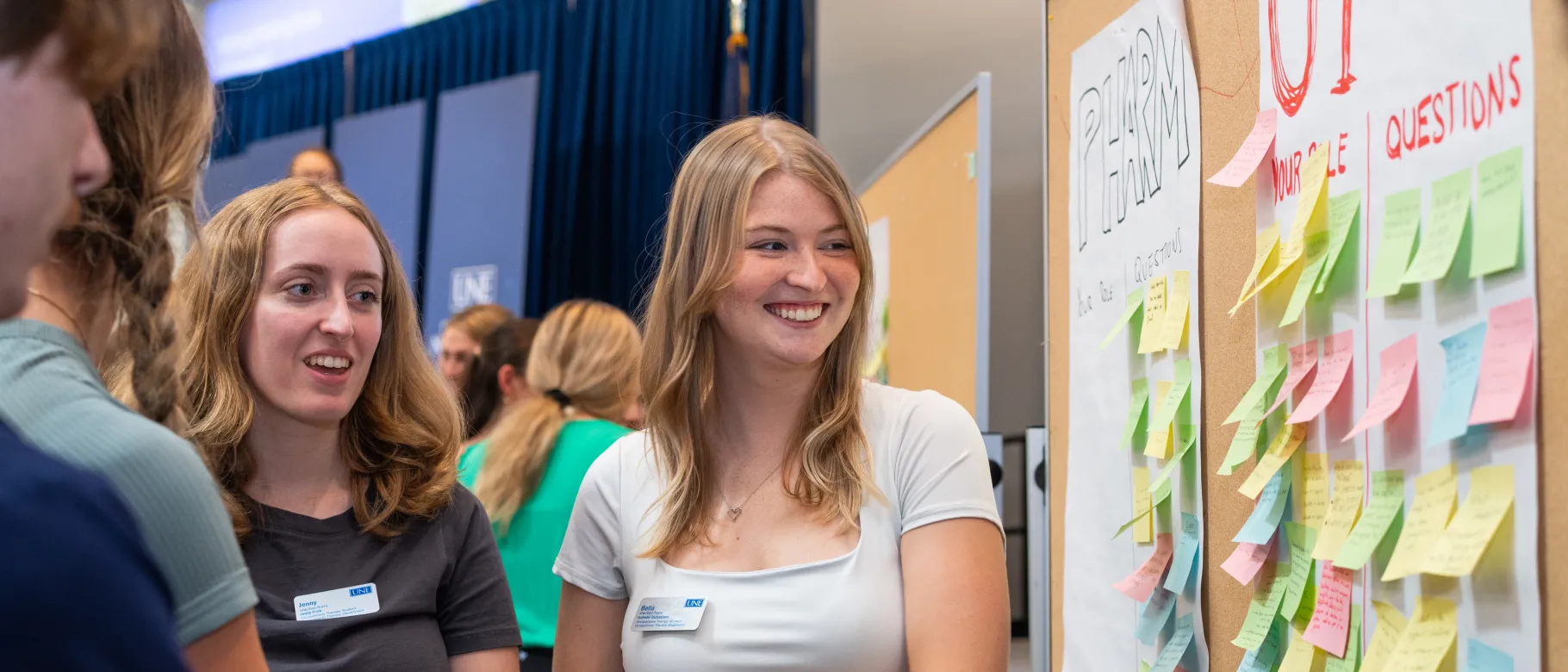Annual student competition will address health care challenges of Maine’s asylum-seeking families

Thousands of asylum-seeking families have resettled in southern Maine in recent years, often encountering a maze of challenges within the U.S. health and social services systems upon their arrival. For many, essential services such as perinatal and postpartum care are difficult to access, with language barriers, insurance difficulties, and unfamiliar bureaucracies compounding the stress.
The city of Portland, alongside local health systems, advocacy organizations, and government agencies, has mobilized to meet the needs of these families. However, persistent gaps in care highlight the ongoing challenge of providing comprehensive, culturally appropriate services.
Against this backdrop, the University of New England will host the 2024 Maine Area Health Education Center (AHEC) Case Competition on Saturday, Nov. 9, at the Harold Alfond Forum on the University’s Biddeford Campus.
Organized by the Maine AHEC Network, through UNE’s Center for Excellence in Public Health, the competition invites students to develop innovative health care solutions for a fictional —but realistic — case study inspired by the experiences of asylum-seeking families in southern Maine.
This year’s case focuses on maternal and child health, following the story of a mother from the central African nation of Angola navigating life as an asylum seeker in Portland. Over the course of four months, experts from community health organizations, social service agencies, and advocacy groups collaborated to create the scenario. Their input ensures the case reflects the real-world challenges facing health care providers and asylum-seeking families alike, said Zoe Hull, M.P.H., director of the Maine AHEC Network through UNE.
“The challenges presented in this case are not hypothetical — they reflect the real difficulties we encounter in our state’s health care system every day,” Hull said. “The solutions these students develop could influence both local and national conversations on health equity and access.”
The competition will feature 50 student scholars, a diverse and interprofessional group of students from UNE’s College of Osteopathic Medicine and physician assistant, physical therapy, dental medicine, and public health degree programs, as well as participants from the Tufts Maine Track program and MCD Global’s community health workers.
These students will compete in interprofessional teams to present health care plans to a panel of 12 judges representing health systems, government agencies, and community organizations, including MaineHealth, the UNE Office of Innovation, and Greater Portland Health.
UNE and the Maine AHEC Network share a commitment to building a health care workforce prepared to meet the needs of Maine’s rural and underserved populations. As Maine grapples with workforce shortages and growing health care demands, the annual Case Competition serves as a platform for students to apply their training and propose solutions to complex health care issues while working across disciplines, remarked AHEC Scholar Program Manager Micaela Maynard, M. Ed.
“Through this competition, students learn not only how to collaborate across disciplines but also how to apply their skills to complex, real-world challenges,” Maynard said. “As Maine continues to welcome asylum seekers and manage workforce shortages, events like this emphasize the importance of interprofessional education in creating compassionate, effective solutions.”